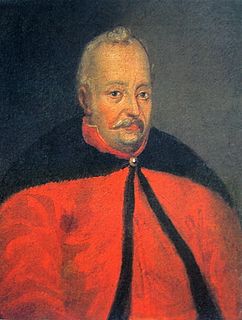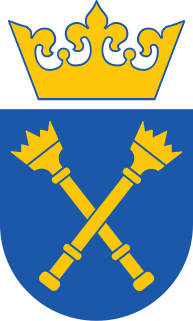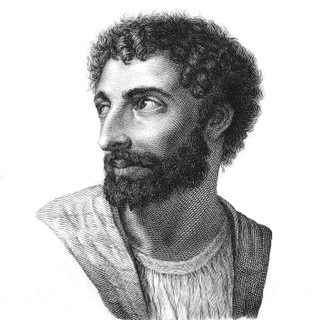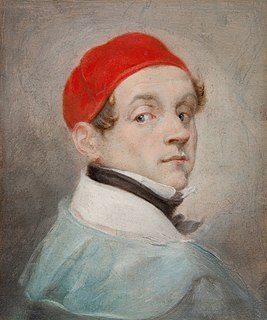
Apteka Rektorska (Rector's Pharmacy) in Zamość is a historic pharmacy located in the Renaissance building at the Main Square 2 in the Old Town. It is the oldest pharmacy still operating today in Zamość, but also, the oldest pharmacy in Poland. It has been operating continuously since 1609. [1]

Zamośćpronounced [ˈzamɔɕt͡ɕ] is a city in southeastern Poland, situated in the southern part of Lublin Voivodeship, about 90 km (56 mi) from Lublin, 247 km (153 mi) from Warsaw and 60 km (37 mi) from the border with Ukraine. In 2014, the population was 65,149.

Pharmacy is the science and technique of preparing, dispensing, and review of drugs and providing additional clinical services. It is a health profession that links health sciences with pharmaceutical sciences and aims to ensure the safe, effective, and affordable use of drugs. The professional practice is becoming more clinically oriented as most of the drugs are now manufactured by pharmaceutical industries. Based on the setting, the pharmacy is classified as a community or institutional pharmacy. Providing direct patient care in the community of institutional pharmacies are considered clinical pharmacy.

The Renaissance is a period in European history, covering the span between the 14th and 17th centuries and marking the transition from the Middle Ages to modernity. The traditional view focuses more on the early modern aspects of the Renaissance and argues that it was a break from the past, but many historians today focus more on its medieval aspects and argue that it was an extension of the middle ages.
The founder of the pharmacy at this location was Szymon Piechowicz, professor of the Zamojski Academy. Piechowicz was a student of the Academy soon after it was founded in 1595. He went on to study at the Jagiellonian University in Kraków where he received the diploma and title of the bakałarz of arts (Artium Baccalaureus in Middle Latin). In 1603 he was invited back to Zamojski Academy as lecturer at the Faculty of Logic. In 1607 he went abroad to study in Italy and received the title od medical doctor at the Padua University on 25 February 1609. He returned to Zamość and took over the Faculty of Medicine. He was elected Rector of the Academy seven times in thirteen years between 1611 and 1624, with the well-earned reputation of a Renaissance man. [1]

The Zamojski Academy 1594–1784) was an academy founded in 1594 by Polish Crown Chancellor Jan Zamoyski. It was the third institution of higher education to be founded in the Polish-Lithuanian Commonwealth. After his death it slowly lost its importance, and in 1784 it was downgraded to a lyceum. The present-day I Liceum Ogólnokształcące im. Hetmana Jana Zamoyskiego w Zamościu is one of several secondary schools in Zamość.

The Jagiellonian University is a research university in Kraków, Poland.

Kraków, also spelled Cracow or Krakow, is the second largest and one of the oldest cities in Poland. Situated on the Vistula River in the Lesser Poland region, the city dates back to the 7th century. Kraków was the official capital of Poland until 1596 and has traditionally been one of the leading centres of Polish academic, economic, cultural and artistic life. Cited as one of Europe's most beautiful cities, its Old Town was declared a UNESCO World Heritage Site.










